The third season of Sound! Euphonium reignites the fandom controversy over Reina and Kumiko’s relationship. Chris and Steve delve into it and why ‘queerbaiting’ is such a loaded term.
Disclaimer: The views and opinions expressed by the participants in this chatlog are not the views of Anime News Network.
Spoiler Warning for discussion of the series ahead.
Sound! Euphonium and its various seasons and movies, including Liz and the Blue Bird, are currently streaming on Crunchyroll.
House is available on Hulu.
Chris
Steve, we’re no strangers to controversy here on TWIA. However, I think I can safely say, without fear of reprisal or discourse-sparking, that I’m happy to have Sound! Euphonium is back this season, specifically because I get to see everyone’s favorite character, Shuuichi!
Everyone unanimously loves this dude, after all.
Steve
You know what, Chris, you’re absolutely right. In fact, let’s go to the cameras for the live Kumiko reaction.

But seriously, I am too stoked to have
Eupho back on TV after all these years. It’s probably the series most singularly responsible for me falling in love with
Kyoto Animation‘s oeuvre, and it’s pointed me in the direction of so many anime creators I still count among my favorite voices in the medium. It’s a rich show told with an uncommon degree of craft. So naturally, it tends to spawn some of the most heinous, reductive, and frustrating discussions throughout anime circles, and with this third season stoking the fires again, we’re closing in on an entire decade of arguments about
Eupho and queerbaiting.
Having followed
Euphonium myself since it first started airing way back in April of 2015, I was as thrilled to have the series back for a new season as I was dreading dealing with this particular aspect of it. I even made some snide remarks on the subject in my Preview Guide entry and inaugural episode review for the season.

It’s the sort of subject I don’t want to consume all of my analysis of the show (though we’ll see how things shake out as it airs). However, it makes for the perfect combination of series side-topic and viewer reaction for a column topic. And so, let’s make our confessions of love.
As usual, we won’t pretend we’re about to solve this discourse once and for all. And queerbaiting is an especially and deservedly touchy subject due to its proximity to the very real and malicious modes of systemic oppression that queer people face in society every single day. They’re all totally valid. But I think that’s also what frustrates me about the queerbaiting lens. It’s a nexus of a bunch of loosely related concerns—some of them valid, and others not so much. Before we get too far ahead of ourselves, though, I suppose it’s probably salient to define what “queerbaiting” is. Or what it’s purported to be, anyway.
That might also be useful in informing any readers who, due to the amount of time
Euphonium and discussion of this aspect of it have been around, might not be fully inundated on what the deal is. Queerbaiting is basically what the name implies: baiting audiences with the possibility of a queer relationship between characters, only to fail to deliver or even actively deny the ship by endgame.


So, for example, viewers could watch through a solid chunk of the first season of
Sound! Euphonium and notice it contains some of the most intensely written and directed romantic tension between leads Kumiko and Reina, only to reveal partway through that Reina’s actually in love with the band club’s male tea. At the same time, Kumiko has a nominal love interest in her childhood friend, the aforementioned Shuuichi.
Queerbaiting is also usually associated with a sense of betrayal. Like the show is intentionally duping viewers—namely LGBTQ viewers—with the promise of representation, only to yank it away in the end. Like, there’s an assumption of malice on the part of creators, who are presumably angling for the queer audience, but ultimately too cowardly or too callous to follow through. That’s an assumption I wouldn’t make without abundant evidence, but that is an attitude you see in these conversations.

It’s a frustration I can understand. Anime has made strides regarding explicit queer relationship rep, but it can still be all too common to see it simply teased while ultimately chickening out on the hard confirmation. It’s why I get how audiences watching Gundam: The Witch From Mercury last year were so frustrated by the lack of, say, a relationship-confirming kiss between the lead couple, even with them being explicitly, visibly married in the finale. Especially given how the corporate overlords still tried to consign it to subtext even then.
I’ll never forget when episode 8 of
Sound! Euphonium‘s first season set the fandom on
fire with the possibilities. Like many viewers, I had been watching through the show, presuming that the Reina/Kumiko stuff was obvious, if enjoyable, bait. But then this one came in like a bolt of yuri lightning that sure
seemed like it was heading somewhere explicit.
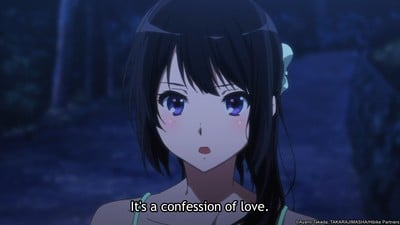
I should point out that, in the first season recap movie, this legendarily gay sequence is
immediately followed up by the scene where Reina tells Kumiko she’s crushing on their teacher.
These sensibilities can make you consider the disparity between the original novel text and the directorial view in framing the anime adaptation through this very particular lens. I can’t speak to the original book version, but the anime version of
Sound! Euphonium clearly
loves Kumiko and Reina’s co-conspirator chemistry. It’s already apparent coming back with the third season, even without
Naoko Yamada on directorial duties.
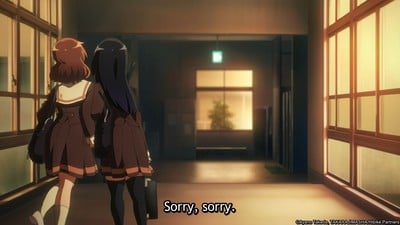
Yeah, I can’t speak for the novels either, but whatever differences are or aren’t there, the anime, like any adaptation, is its own work—a sum of all the different artists’ voices that go into an anime production. To that end, Yamada’s legacy certainly persists, and I do mean
LEGacy.
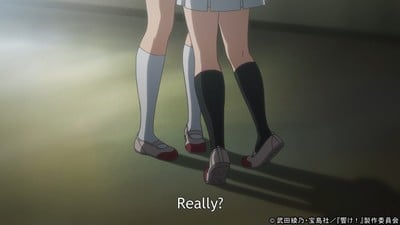
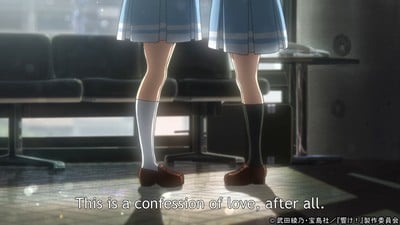
You joke, but I think that does make for one effective avenue for viewing
Euphonium‘s queerbaiting. What we’ve effectively gotten in the series is a story beholden to the original text and characters with their heteronormative crushes and relationships. But it’s filtered through the lens of directors who are more interested in the chemistry and tension between the girls themselves. This is where I’ll agree with your point that for as much as the depiction of the relationship leads things on, it’s probably not being done with malice.

Yamada has been on record saying she has difficulty depicting boys, which might account for Shuuichi’s diminished presence in the earlier
Euphonium seasons and his relationship with Kumiko feeling like such an undercooked component compared to the lovingly rendered yuri that audiences understandably latched onto. The staff just liked this stuff as much as the viewers did!

The thing is, it’s the way all those elements converge in telling this story that, I think, causes
Sound! Euphonium to be such a lightning rod for queerbaiting as a controversy. This wasn’t a case of something like
Free!, where you had homoerotically charged relationships between characters that never got textually confirmed. Instead, in
Euphonium, the characters involved
also have canon straight love interests hanging over them, like the Sword of Damocles. The idea that the narrative would follow on that as more “legitimate” than the dramatized lesbian love story is where issues of erasure rear their ugly head.

Speaking to the context of the time, it also didn’t help that
Euphonium‘s first season was airing after the completion of
Yuri Kuma Arashi, a series that made some pointed commentary on subtextual depictions of lesbians and almost literally declared “We need to do better!”
I kind of hate using “erasure” in this context, though, because what’s being erased? If the season 3 finale credits roll with Kumiko getting together with Shuuichi, it’s not like all those scenes with Reina magically disappear or become less potent. It’s not like Shuuichi “wins” and lesbians everywhere “lose.” Stories are so much more than their conclusion. Not to mention, these queerbaiting debates, more often than not, erase the concept of bisexuality from their arguments. Kumiko has two hands.

I watched that movie back when it was in theaters, and until you reminded me, I had completely forgotten that Shuuichi and Kumiko tried dating in it. That’s how little their chemistry registers with me. But I also don’t hate Shuuichi nor think their relationship is anathema to everything the show should be standing for. It’s possible to have a normal one about Eupho! I promise, it’s not a myth!
That loops around to a broader issue with queerbaiting in this kind of material and with
Sound! Euphonium in particular. Shipping can already be a dominating topic when discussing a work, but it
really seems to take over the discourse in this case. There’s plenty else to criticize and analyze in this anime, but it can be hard to navigate when people only want to hone in on the perceived bait-and-switch as its be-all-end-all flaw.

There’s that, and there’s also the added absurdity of
Eupho paving the way for the spinoff film
Liz and the Blue Bird, which is one of the most quietly powerful and devastatingly poignant audiovisual works about sapphic pining that I’ve ever seen put on celluloid. This film infuses multiple volumes of unspoken yuri angst in a single strand of hair. And
this is the franchise that causes so much gnashing of teeth for not being gay enough? Talk about pearls before swine.

They make sure all the important couples get their cameos.
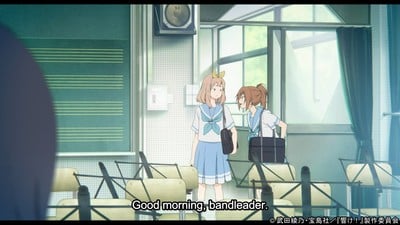
I wouldn’t be surprised if
Liz and the Blue Bird has also been a victim of the dreaded discourse due to its lack of an overt physical signifier like a kiss between its leads. But when there’s so much goalpost moving in queerbaiting arguments, they can start to resemble the rhetoric homophobes use to deny the presence of any queer characters in anything (a la the
Witch from Mercury debacle referenced earlier). If you don’t think this image is a beautiful and unambiguous encapsulation of Mizore and Nozomi’s love for each other, you clearly did not watch the same movie.

Liz and the Blue Bird doesn’t have as many murder pacts as
Sound! Euphonium, but that doesn’t make its love story any less beautiful. Regardless, you make a salient point regarding these kinds of interpretations. Coded readings of characters have been an element of analysis for eons—arguably, the best way to push back on issues of queerbaiting is to simply read the characters as
even gayer. “Up to interpretation,” like Kumiko, can go both ways.
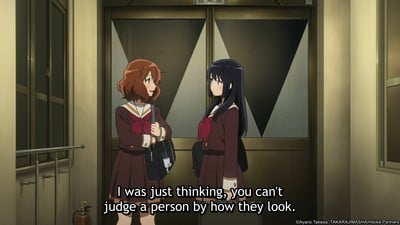
It is worth emphasizing that these controversies are by no means new nor unique to
Eupho. I remember my first brush with these convos was in LiveJournal communities about
House, MD back when it was airing. Some people loved the show’s many nods to House and Wilson’s obvious gayness for each other, and some people thought these jokes were written at the expense of the show’s queer fans.

As mentioned earlier, questions of representation and erasure mean people will always be understandably punchy about these portrayals. It can also make it interesting to see how things have evolved. Mobile-game-based idol franchises have long built appeal by teasing subtextual relationships between their casts. But nowadays, we have series like
D4DJ, including explicit lesbian couples!

That does raise some retroactive questions about the nature of those previous implied relationships, but they’re important steps nonetheless.
The
House example also shows how nuanced and malleable these issues can be. When I rewatched the whole series last year, I discovered that the show had at least two lesbian writers on staff. Not only that, they both contributed to the episode where House and Wilson pretend to be a gay couple (for nefarious purposes, of course). So is this queerbaiting, or are these two queer writers having as much fun as they can on a show with a primetime slot on Fox? I’m inclined to believe the latter.



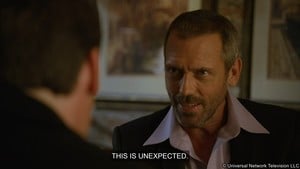
Also, the show is huge now in certain corners of queer shitpost
Twitter. Art works in mysterious ways.
If a retro anime like
House can go on to that kind of reappraisal and adoption, maybe there will be hope for
Sound! Euphonium in the future yet. Given what we know about the crew and what they did in
Liz and the Blue Bird, I’m earnestly curious to see where they take things for this third season and if they might push elements of this adaptation just like on that funny doctor show.

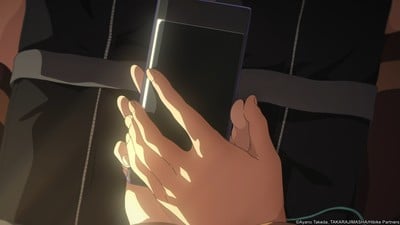
I’ll say this is less a case of me giving the show the benefit of the doubt and more me appreciating
Euphonium on its terms enough that I’m willing to settle in and enjoy the ride. I’d keep up with this season even if it weren’t part of my review docket.
LGBTQ rep onscreen is absolutely important, and we need a lot more of it before we reach any parity with the heteronormative attitudes that have dominated media for so long. But I don’t think endlessly litigating the presence of “queerbaiting” is a productive way of enacting that. It flattens everything it touches and leaves no room for subtext, nuance, conflict, and all the other things that make fiction good. I wish the people yelling about
Eupho would put half as much energy into seeking out works made by queer creators who earnestly grapple with their own lived experiences. Doing so will both enrich your media diet and it will allow these weird band kids to be disasters in peace.


Disasters? I don’t know what you’re talking about; they’re totally normal!
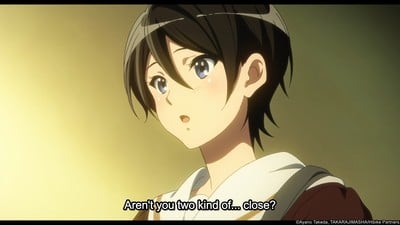
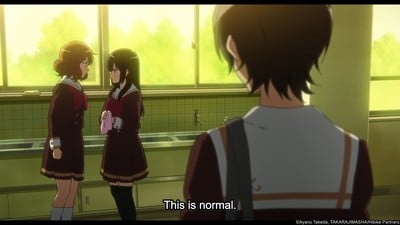
It’s normal for bandmates.
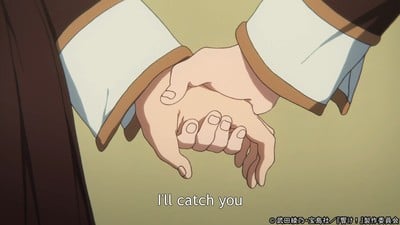

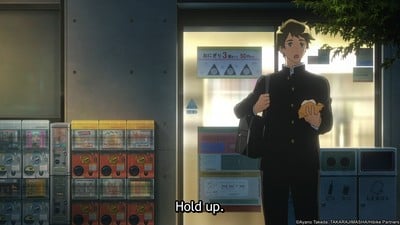









































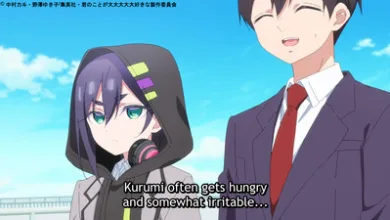
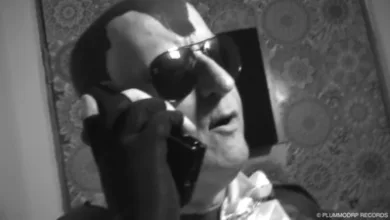
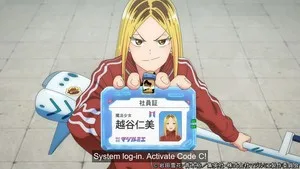
![For the Fans[ervice] - This Week in Anime](https://theanimenews.net/wp-content/uploads/2024/11/1732205217_For-the-Fanservice-This-Week-in-Anime-390x220.webp)